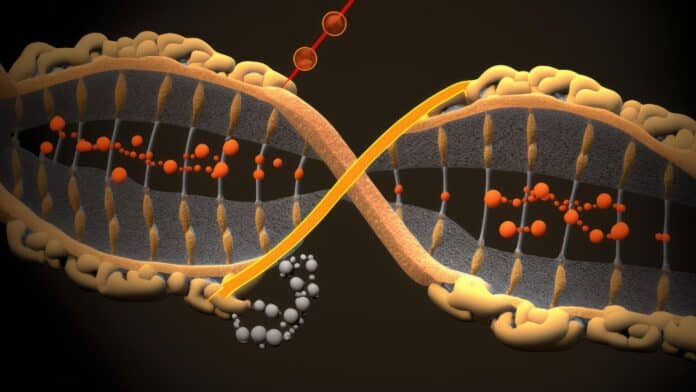Scientists from the Johannes Gutenberg University have found a new enzyme, PUCH, that helps our cells fight against harmful DNA from parasites. This discovery could help us better understand how our bodies defend against bacteria and viruses to stay healthy. Our cells are constantly under attack from foreign invaders like viruses and bacteria. To protect us, our bodies have an immune system that fights off these threats. But sometimes, our cells also have to deal with problems from the inside.
Almost half of our genome, around 45 percent, comprises genomic parasites known as transposable elements (TEs). These are repetitive DNA sequences with no specific purpose. However, they can be troublesome because they can move around and cause harmful mutations. Our cells constantly battle against these TEs.
To fight these internal enemies, our cells have developed a defense system with unique proteins that hunt down and stop TEs from spreading. In a recent study published in Nature, scientists discovered a new enzyme called PUCH. This enzyme is crucial for our defense system because it helps produce small molecules called piRNAs. These piRNAs detect TEs when they try to move and activate our defense system to prevent TEs from causing trouble in our DNA.
The scientists found PUCH in roundworm cells, simple creatures used for research. This discovery might help us understand our immune system better. PUCH has unique structures called Schlafen folds. Similar enzymes with Schlafen folds are also in mice and humans, where they help with our first defense against viruses and bacteria, known as innate immunity. Some Schlafen proteins can stop viruses from multiplying in humans. However, some viruses, like monkeypox, might use Schlafen proteins to attack our cell defenses. Schlafen proteins may be crucial in immunity across many species, including humans.
Ketting, a Professor of Biology at Johannes Gutenberg University Mainz (JGU), said, “Schlafen proteins may represent a previously unknown molecular link between immune responses in mammals and deeply conserved RNA-based mechanisms that control TEs.”
Schlafen proteins could be a defense system against outside enemies like viruses and inside ones like TEs. They might have turned into enzymes that shield cells from harmful DNA, like TEs. Sebastian Falk said, “This finding could change how we understand our immune system’s first line of defense against diseases.”
The trimeric Schlafen-domain nuclease is crucial for piRNA processing, which helps maintain genomic stability. Understanding this process can impact gene regulation, control of transposable elements, and disease prevention. Future research may uncover therapeutic applications related to piRNA processing regulation.
Journal Reference:
- Podvalnaya, N., Bronkhorst, A.W., Lichtenberger, R. et al. piRNA processing by a trimeric Schlafen-domain nuclease. Nature. DOI: 10.1038/s41586-023-06588-2.
